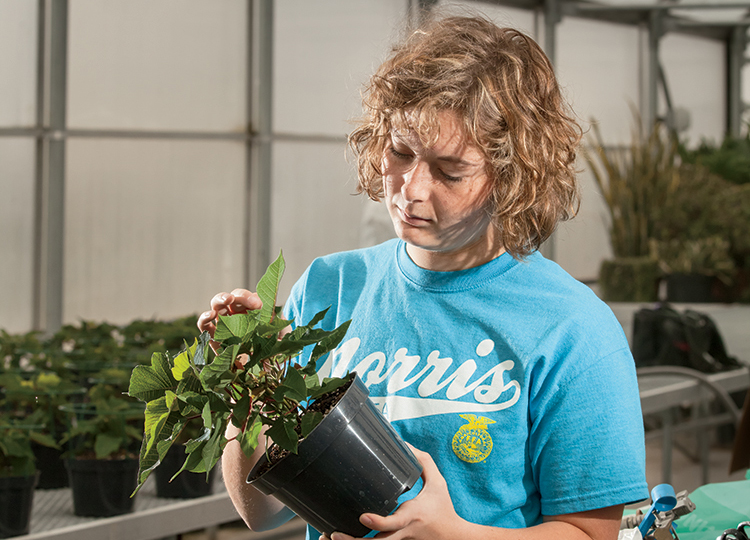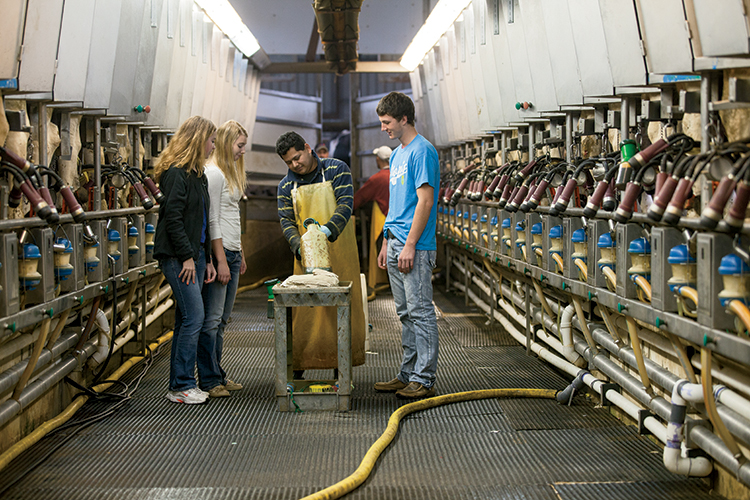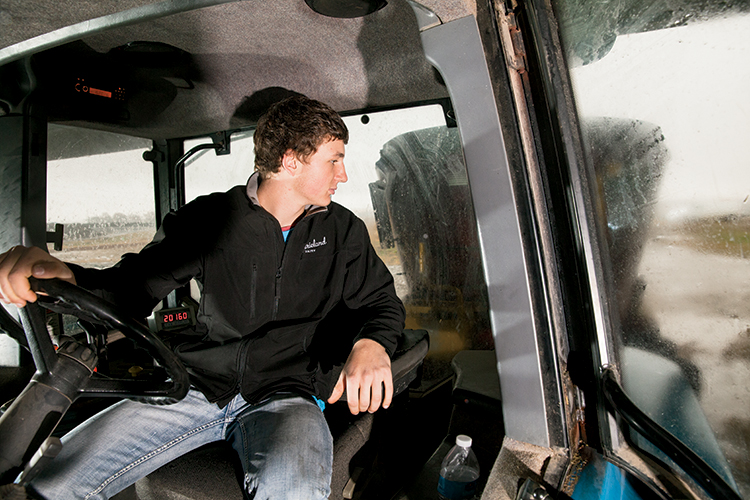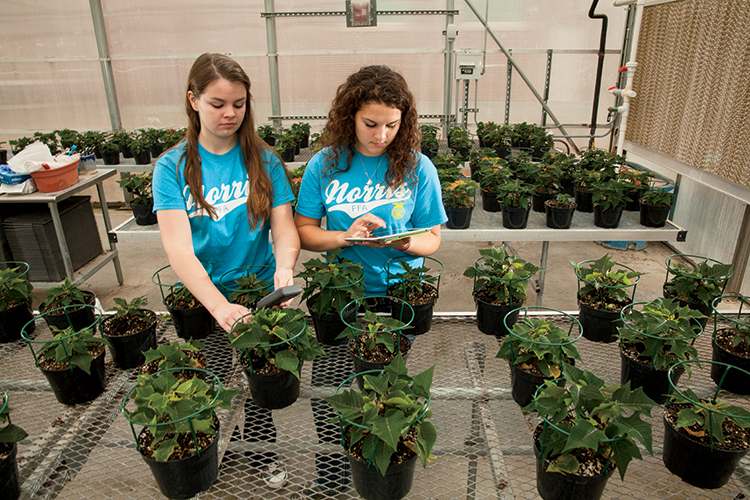Home > Nebraska > Nebraska Ag Education > Nebraska FFA: School Smarts
Nebraska FFA: School Smarts

“Brain drain ” is a challenge in many Midwestern states, as highly skilled high school and college graduates flock to large metropolitan areas to pursue their careers. But here in Nebraska, where one in four jobs is related to agriculture, FFA and agricultural education programs are helping reverse that problem.
“We see agricultural education as an avenue to address ‘brain drain’ in Nebraska,” says Matt Kreifels, state director of Nebraska agricultural education for the Nebraska Department of Education. “Students who fully participate in an agricultural education program become college- and career-ready. They have the academic and technical background coupled with the ability and motivation to maximize their potential in college and the workplace.”
Of Nebraska’s 268 high schools, 150 offered agricultural education programs during the 2013-2014 academic year.

“Over the last four years, 20 Nebraska high schools added ag education programs,” Kreifels says. “Agricultural education is reaching a higher percentage of Nebraska students than ever.”
Kreifels notes students don’t need to come from a farm or rural setting to benefit from an agricultural education program. More than 13,000 students are enrolled in agricultural education courses statewide, and those classes are preparing them for more than 300 possible careers in agribusiness, animal and plant systems, natural resources, environmental systems, food science and more. Agricultural education in Nebraska consists of three components: classroom instruction, experiential learning through a supervised agricultural experience (SAE) and leadership development through FFA.
“FFA is typically the image of an ag education program because it serves as the recognition and achievement arm of our programs,” Kreifels says. “Students have the ability to test the skills and knowledge they acquire through the classroom, laboratory and their SAE projects in competitions with other FFA members. FFA is also known for giving students opportunities in leadership development as they experience what it’s like to serve on committees and as officers in their local chapter, practice parliamentary procedure and communicate through public speaking events.”

Nebraska had more than 6,600 FFA members in 2012-2013, and that number grows every year.
“As you can imagine, a cohesive program that spans a student’s entire high school career has the ability to impact an individual on a deep level,” Kreifels says. “Ag education provides opportunities for students to excel in our state and nation’s largest industry, and we help them do that through a unique and transformational model of instruction.”
Norris High School’s successful agricultural education program has been preparing students for career success since 1969. Two full-time agriculture instructors and FFA advisors – Doug Malone and Kristyn Harms – teach 500 students each year about everything from greenhouse management and floral design to landscaping, welding and animal science. The Norris FFA Chapter has 100 members who are active in their school and community.
“Our school sits on 270 acres and represents seven towns,” Malone says. “We have our own 110-acre test plot where our students raise soybeans and corn, as well as our own greenhouse. We’re only 10 miles from Lincoln, so we diversify our program to show kids the various careers in agriculture. Out of 100 kids, only about 15 are actual farm kids – the rest are interested in leadership and FFA.”

Spalding Public School’s FFA chapter was established in 2006 and has 34 members, but despite its small size, it has had a huge impact on the surrounding community. The chapter hosts a fun annual community event called the Blue Rock Shoot, a 5K Run/Walk, 1-mile Kids’ Fun Run, and a petting zoo, during FFA Week.
“Elementary students and community members enjoy visiting all the animals, and it gives members a chance to do a little agricultural literacy as well,” says Abby Knobbe, Spalding FFA advisor. Spalding FFA also raises vegetables and flowers in a greenhouse, collects and recycles the community’s aluminum cans, and landscapes at a local park. Knobbe says it’s rewarding to see students blossom from shy, quiet individuals to accomplished speakers and leaders.
“As an FFA advisor, it’s my goal to help each student become as successful as he or she can be in whatever his or her interest area is,” Knobbe says. “It means so much when a student says, ‘I wouldn’t be where I am now if it weren’t for you pushing me.’ FFA has so much to offer to such a wide range of students, and that’s one thing that makes it so great and the largest student organization in the country.”



